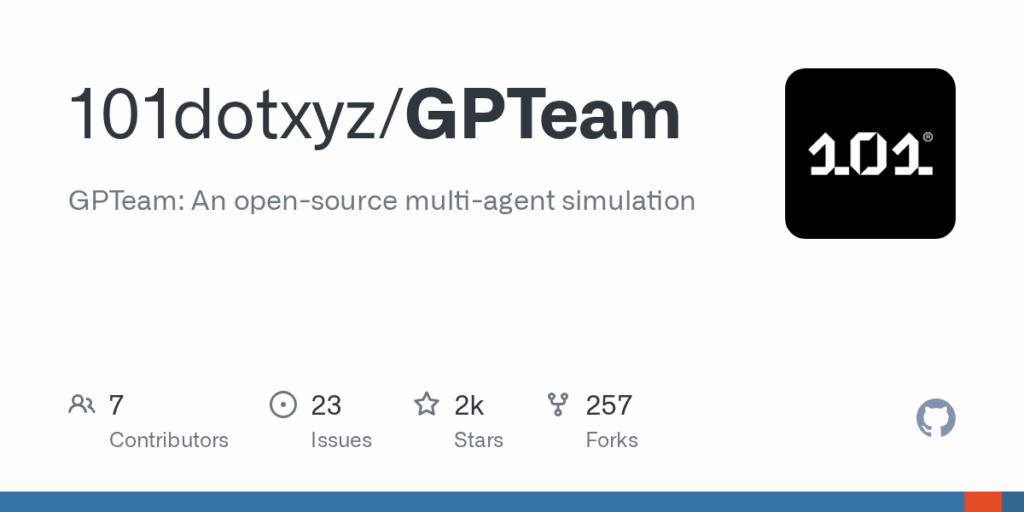GPTeam
Basic Information
GPTeam is an open-source project that creates and runs a simulated world of collaborative AI agents powered primarily by GPT models. The repository provides code and configuration to spawn multiple agents that communicate, move between locations, and work together to accomplish predefined goals. It is intended for exploring multi-agent productivity, agent memory and reflection, and emergent coordination using large language models. The project runs locally and requires API keys configured in an environment file. Users can launch the simulation with provided CLI commands, view per-agent state files in the agents/ folder, and customize the world via a config.json. The README also points to a web app, a video demo, and a detailed architecture blog post for additional context.








